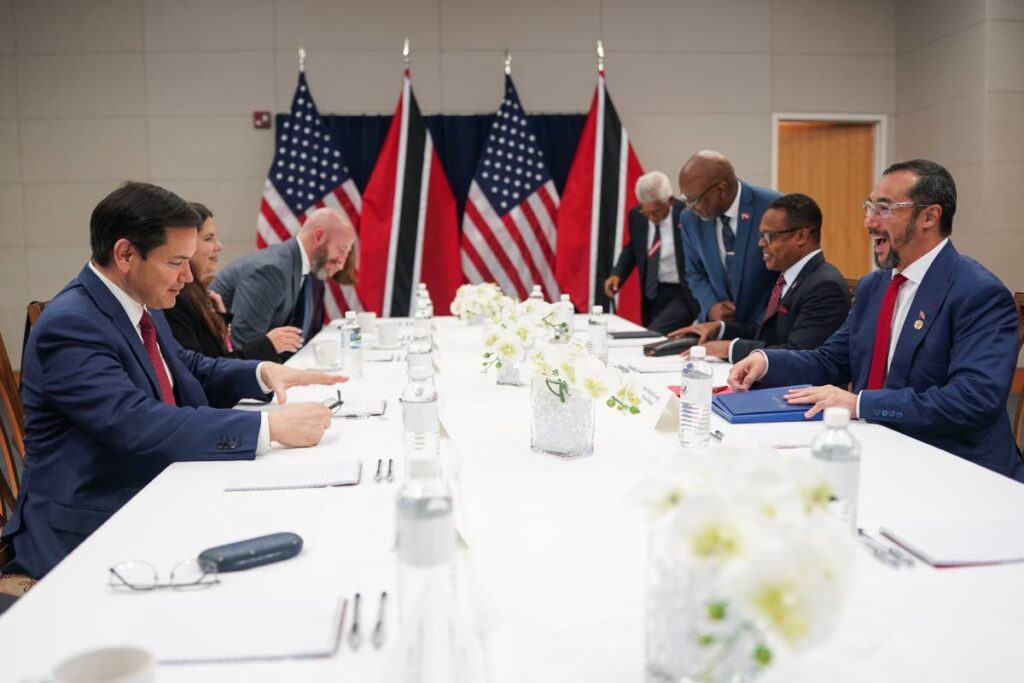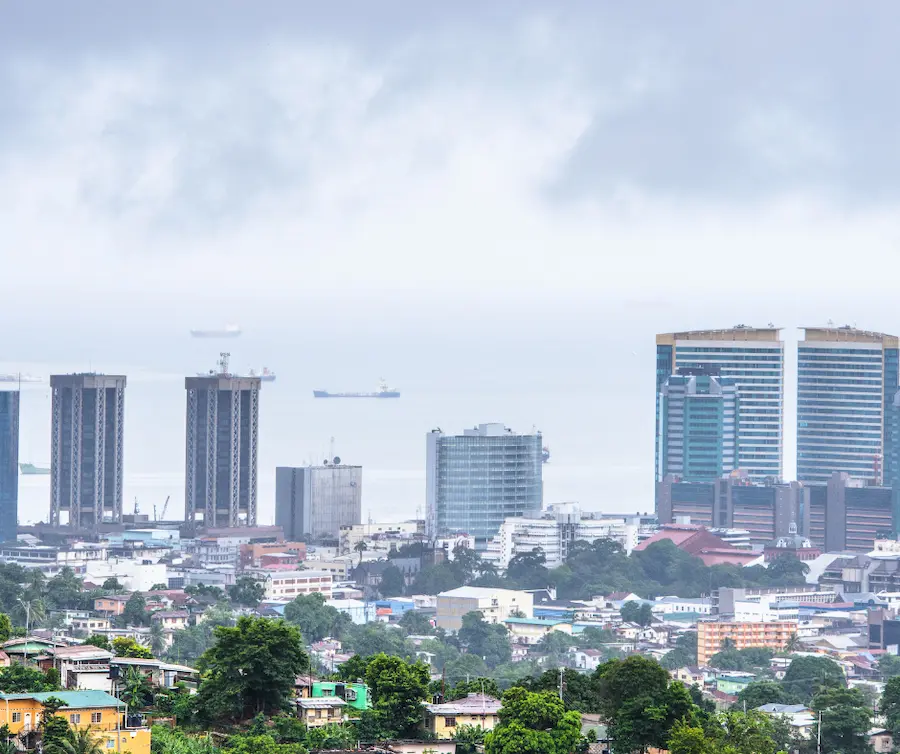

PRIME Minister Stuart Young and US Secretary of State Marco Rubio have agreed to co-operate on deepening TT-US collaboration on energy, national security and other matters of mutual interest.
This was reflected in a statement issued by the US State Department on the evening of March 26, after Young and Rubio held bilateral discussions in Jamaica.
The meeting lasted for one hour.
The statement, read by State Department spokesperson Tammy Bruce, said Rubio thanked Young "for Trinidad and Tobago’s cooperation to promote energy security, deepen our security partnership, and enhance coordination on the deportation of illegal aliens."
Rubio and Young discussed the Trump administration’s decision to name the dangerous Venezuelan gang, Tren de Aragua, as a foreign terrorist organisation (FTO) and encouragement for regional partners to take similar steps.
>
Rubio encouraged Young to join the US and other Caribbean democracies in limiting malign influence in the region.
This information was repeated in a post on X by the US Embassy in TT later on March 26.
In a briefing on March 25 about Rubio's travel itinerary to the Caribbean this week, US Special Envoy for Latin America Mauricio Claver-Carone said the US understood TT's longstanding role as an energy leader in the region.
"Obviously it is going through its own development as it seeks to revitalise its natural gas opportunities and is going through that modernisation as some of the older fields and opportunities there dry up and they’re looking for the new ones."
Claver-Carone said, "There, along with a lot of the challenges posed with Venezuela, we’re deeply committed to working with Trinidad to figuring out how to re-energize that – those natural gas opportunities and ensure that its economy continues to move forward despite the challenges presented with Venezuela and otherwise."
He added this is a historic opportunity for energy security in the Caribbean.
A statement issued by the Office of the Prime Minister (OPM) earlier on March 26 said, "The talks focused on several issues of mutual interest, including national security, trade and energy. The discussions were productive with both parties emphasizing the importance of the relationship between both countries and pledging to deepen ties."
Young returned home on March 26 and will address a post-Cabinet news conference at Whitehall on March 27 to provide information on the bilateral discussions with Rubio.
On March 24, US President Donald Trump announced the US will put a secondary tariff on Venezuela for many reasons, including allegedly sending high level criminals to the US such as members of the Tren de Aragua gang.
>
The post said any country which purchases oil and gas from Venezuela will be forced to pay a 25 per cent tariff to the US on any trade they do with the US.
This tariff is supposed to take effect from April 2.
At a post-Cabinet news conference at Whitehall on March 20, Young said efforts continue to be made to ensure cross-border energy deals with Venezuela come to fruition. Young reminded the media about the last briefing held at the same venue on this issue on February 27.
“We will continue working. I will personally continue working, Fighting is the language I used for TT. That has continued.”
Young said, “Very, very shortly. I will be able to provide some additional information to TT with respect to those lines.”
In a post on social media last month, Rubio said, “Today, pursuant to @POTUS directive, I am providing foreign policy guidance to terminate all Biden-era oil and gas licences that have shamefully bankrolled the illegitimate (Venezuelan president Nicolas) Maduro regime.”
On February 26, Trump announced a licence granted under the Biden administration in November 2022 for Chevron to operate joint ventures with Venezuela’s state-controlled oil company PDVSA, was cancelled.
The announcements follow an increased bounty offer on Maduro by the US government in early January, US$25 million was offered for information leading to the Venezuelan president’s arrest on outstanding narco-terrorism charges filed in the US in 2020.
One of the licences granted by the Biden administration was for the TT-Venezuela Dragon gas deal.
>
On December 21, 2023, the Venezuelan government issued the licence to NGC (National Gas Company) and Shell to develop and export natural gas from the Dragon gas field to TT.
The Office of Foreign Assets Control (OFAC), which falls under the US Treasury, played a key role in granting this licence under the Biden administration.
Concerns were raised about whether the Dragon project could be in jeopardy after Trump won the presidential election on November 4. The US$1 billion Dragon gas deal was first signed between TT and Venezuela in August 2018. But it was left in limbo after the US imposed sanctions on Venezuela in 2019. Trump was president at that time.
In a letter to Trump on November 6, then prime minister Dr Keith Rowley said, “The Republic of TT and the USA share a long and enduring relationship, founded on deep ties across many sectors, including trade, security, culture and people-to-people exchanges.”
Rowley added, “We look forward to further strengthening our co-operation in the years ahead.”
Reuters reported on February 25 that government would meet with the US to extend the licence for the Dragon project.
At the TT Energy Conference in Port of Spain on February 11, Rowley said government intends to engage the Trump administration on the importance of several energy projects, including the Dragon project and the Manakin-Cocuina project.
He said the projects were important not only to TT, but also to the region’s energy security.
Rowley resigned as prime minister on March 16 and Young officially succeeded him one day later.
>


